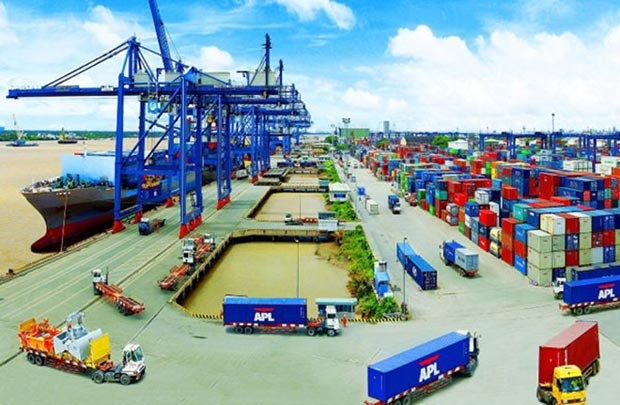VietNamNet Bridge - In the 19th century, Vietnam's economy was more developed than many countries in the region, but now Vietnam lags far behind them. If the country is determined to conduct institutional innovation, it will take 20 years for Vietnam to catch up with the Korean economy in 2000. Otherwise, the country will fall into the middle-income trap.

After three months of publication, the report "Vietnam 2035: Towards prosperity, creativity, justice and democracy" was again discussed at an international conference held on May 30.
Mr. Vu Tien Loc - Chairman of the vn Chamber of Commerce and Industry (VCCI) - said this was the first time that Vietnam has had an economic prospect report for the long-term, with 20-year vision.
"The report is particularly important for the confidence of the business community. Vietnamese enterprises need a long-term, strategic vision, not just a short-sighted vision in the next few years," Loc said.
This report clearly outlined the role of entrepreneurs and enterprises in the economic development strategy of Vietnam, but to develop private enterprises, it will require institutional innovation.
This issue was also stressed by Victoria Kwakwa - Vice President for East Asia of the World Bank (WB). Accordingly, private enterprises must be an important part of the transition of Vietnam, the key to achieve development objectives in the future.
But, in fact, private enterprises in Vietnam are still mainly small and super-small enterprises, which are fragile in the context of integration.
Therefore, the State's duty is to support the development of the private sector, so that, in turn the private enterprises will boost the economy.
This fact requires the Government to identify its role and responsibilities to create an appropriate state model.
Vietnam is facing a turning point of reform and development
Vietnam Report 2035 shows that the current institutions of Vietnam are facing two major problems: creating barriers for autonomous operation of the private sector, weak capacity and low accountability.
Therefore, the establishment of a clear boundary between the enterprises of the private sector with government officials is essential to create a favorable environment for long-term investment and the growth of technology-intensive industries.
Vietnam’s current economic institutions exposemany shortcomings and inequalities in access to resources between economic sectors.
The report also points out the shortcomings of the current institution in Vietnam, which is that the state is fragmented and the responsibility for planning and implementation of policies is given to many different agencies at the central and local levels.
The report also says that one important source of income of local governments is the proceeds from the transfer of land use rights. Therefore, in many places, local governments have abused their power in revoking and controlling land prices, causing land disputes.
"The bias of SOEs or other businesses is due to their friendly relations with the state. This fact has reduced the ability of state agencies to promulgate regulations consistent with the principles of sound economic management," according to the report.
Nguyen Van Vinh, Deputy Director of the Institute of Development Strategy (Ministry of Planning and Investment), said that if in the 19th century, Vietnam's economy was equal, even surpassed many countries in the region, at the moment, Vietnam has lagged far behind them.
What are the causes? It is the institutional gap. Therefore, without institutional reform, Vietnam willfurther lag behind.
"The most important message of this report is that innovation, robust innovation, continuous innovation is the most important requirement for the development?" Vinh said.
Pham Thi Thu Hang, VCCI General Secretary, noted that if Vietnam is determined to reform in the next 20 years it will be able to catch up with the development of Korea in 2000.
However, according to the report, "Vietnam is facing the turning point of reform and development. Opportunities are huge but challenges and difficulties are also big. To achieve the aspirations towards a prosperous, innovative, fair and democratic Vietnam, the only option is to implement reforms based on the above issues."
| related news |
|
Renewal process continues in VN The man who envisioned a new Viet Nam Vietnam’s productivity puzzle: Should we worry? |
Na Son